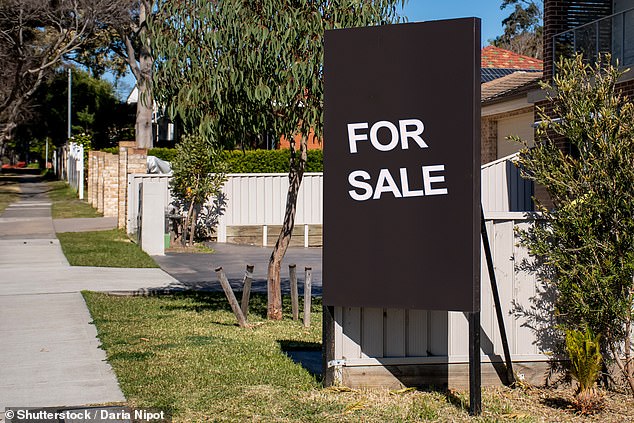Australians have criticized a landlord after he complained he was forced to sell his investment property because the rent could not keep up with high interest rates.
Owen Wells, 73, had been renting the two-bedroom apartment in Melbourne’s CBD for almost 20 years, but said rising costs had led him to list the property that was supposed to help fund his retirement and that of his wife Helen.
But there was very little sympathy for the boomer couple after social activist Jordan van den Lamb, known as Purple Pingers, shared the story.
The landlord realized he couldn’t get a tenant to pay ALL of his mortgage and had to pay some of it himself. Incredible things,” he wrote in X.
The sarcasm flowed thick and fast, with one commenter writing: “Poor guy.” Imagine having to pay for the house you are buying. Nightmare fuel.
Another said: ‘Oh, poor thing. What a deep trauma! Thoughts and prayers.’
Others questioned the basic economics and mathematics of Wells’ investment strategy.
“Bought the property 20 years ago,” one wrote.
Social media users exploded in condemnation of a homeowner who said he was forced to sell his investment property due to high interest rates. stock image
‘How much did you buy it for if your payments are so high 20 years later? Have you not paid any of your debts for 20 years?
Wells said his mortgage payments increased from $2,900 to $4,200 a month earlier this year.
He said when he bought the property two decades ago, interest rates were reasonable and he had achieved good capital growth and rental income.
But now, with much higher land tax, strata rates and interest rates, the rent they were charging no longer covered the cost of running the apartment.
“My cash flow, just from my interest (repayments), goes from $35,000 a year to over $50,000…so when I get $36,000 a year in rental income, I’m right behind the eight ball,” he said. said The age.
He said that on top of that, he also had to pay fees and costs for legal entities and agents, “so I have a negative cash flow.”
The cash rate is currently at its highest level in 12 years and stands at 4.35 percent.
CoreLogic research director Tim Lawless said rising costs were deterring real estate investors in the state.
“A lot of people point out that the high tax environment in Victoria is a disincentive to investment, and I think it is,” he said.
“There are also leasing reforms, which increase costs in terms of getting rental properties up to standard, and there are also higher mortgage payment costs, and some of that has been offset by quite a bit of growth.” rents”. , but it hasn’t been enough.’
Social media users criticized Mr Wells, claiming he should have investigated more.
“Imagine buying an investment property without understanding how interest rates work,” one wrote.
“Particularly in Melbourne, which has the lowest rental yield in the country.”
“Real estate investors should be required to pass a certification on the fundamentals of investment risk,” said another.
“No other company would get away with this… without managing their financial risk.”
Others wondered why Wells only told part of his story.
“I notice you are quick to offer details of costs, but you are not all that interested in providing the capital gain on the sale of this investment property you owned for 20 years,” one wrote.
“We are expected to accept that rich people, the rentier class, somehow achieved their success through merit,” said another.
A third wrote: “Do people do their research before they buy?”


